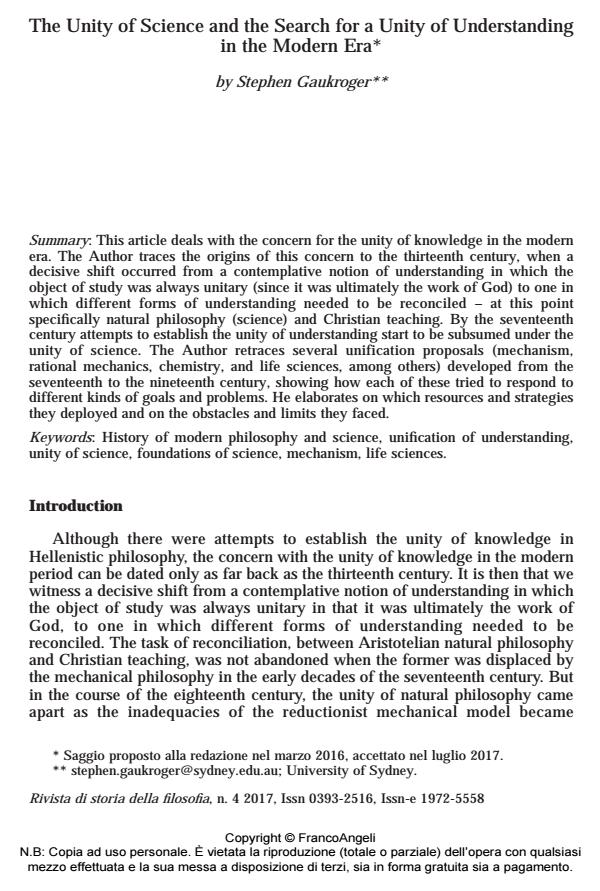The Unity of Science and the Search for a Unity of Understanding in the Modern Era
Titolo Rivista RIVISTA DI STORIA DELLA FILOSOFIA
Autori/Curatori Stephen Gaukroger
Anno di pubblicazione 2017 Fascicolo 2017/4
Lingua Inglese Numero pagine 21 P. 553-573 Dimensione file 72 KB
DOI 10.3280/SF2017-004002
Il DOI è il codice a barre della proprietà intellettuale: per saperne di più
clicca qui
Qui sotto puoi vedere in anteprima la prima pagina di questo articolo.
Se questo articolo ti interessa, lo puoi acquistare (e scaricare in formato pdf) seguendo le facili indicazioni per acquistare il download credit. Acquista Download Credits per scaricare questo Articolo in formato PDF

FrancoAngeli è membro della Publishers International Linking Association, Inc (PILA), associazione indipendente e non profit per facilitare (attraverso i servizi tecnologici implementati da CrossRef.org) l’accesso degli studiosi ai contenuti digitali nelle pubblicazioni professionali e scientifiche.
This article deals with the concern for the unity of knowledge in the modern era. The Author traces the origins of this concern to the thirteenth century, when a decisive shift occurred from a contemplative notion of understanding in which the object of study was always unitary (since it was ultimately the work of God) to one in which different forms of understanding needed to be reconciled - at this point specifically natural philosophy (science) and Christian teaching. By the seventeenth century attempts to establish the unity of understanding start to be subsumed under the unity of science. The Author retraces several unification proposals (mechanism, rational mechanics, chemistry, and life sciences, among others) developed from the seventeenth to the nineteenth century, showing how each of these tried to respond to different kinds of goals and problems. He elaborates on which resources and strategies they deployed and on the obstacles and limits they faced.
Parole chiave:History of modern philosophy and science, unification of understanding, unity of science, foundations of science, mechanism, life sciences.
- Science and the Shaping of Modernity Charles Wolfe, pp.291 (ISBN:978-3-031-76036-5)
Stephen Gaukroger, The Unity of Science and the Search for a Unity of Understanding in the Modern Era in "RIVISTA DI STORIA DELLA FILOSOFIA" 4/2017, pp 553-573, DOI: 10.3280/SF2017-004002